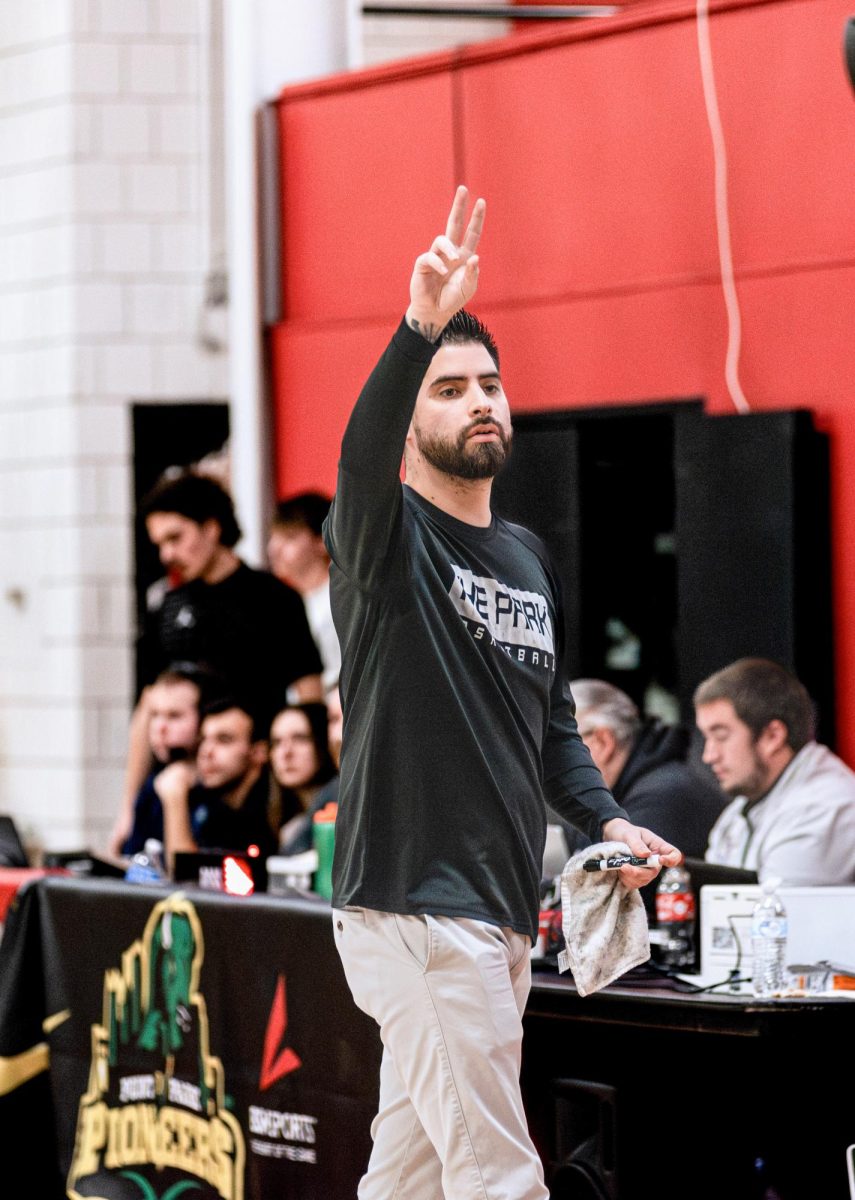Last month, the university announced its plans to move up from the National Association of Intercollegiate Athletics (NAIA) to the National Collegiate Athletic Association (NCAA) Division II. The university will be competing in the Mountain East Conference (MEC).
“Point Park has received a formal invitation to join the Mountain East Conference (MEC), a National Collegiate Athletic Association (NCAA) Division II league, beginning in the Fall of 2024,” President Chris Brussalis said in an email last month. “We will, of course, pursue this incredible opportunity by taking the next step, which is to apply for membership into the NCAA.”
NCAA MEC Commissioner Reid Amos said the conference has had a longstanding relationship with the university dating back to the 90s, and that Point Park had plans to apply before the conference extended an invitation.
“[Point Park] said they were in the process of starting an application, so when we reached out it was perfect timing,” Amos said. “Point Park has so many assets from an urban campus – none of our current members have that – to growing teams and facilities that it just made sense given our current situation.”
With Pioneer Vision 2030, which details the university’s plan for the coming years, a new community center with an updated athletic facility is planned to be built.
Amos said that it is not uncommon for urban universities to play at off-campus facilities. The university currently utilizes the Community College of Allegheny County (CCAC) for basketball, Highmark Stadium for soccer, Green Tree Park for baseball and Fairhaven Park for softball.
“I visited with other board members and did the evaluation of the university’s facilities,” Amos said. “We are so excited about Highmark where soccer will play…we’ve mutually agreed to make some adjustments with regard to where volleyball will be played, and we’re still working on what that outcome will be.”
Alderson Broaddus University left the conference last year, leaving the MEC with 11 members. Amos said scheduling is much easier with an even number of members.
Interim Athletic Director Scott Swain said the university has already submitted its application. The MEC board will vote on if the university will be officially accepted into the MEC in July.
“We’ve submitted our application now, but it’s a three-year process that you go through as an institution, so it’s my goal to successfully get us through that NCAA membership process,” Swain said. “My second goal is to help all of us – coaches and staff and the university – transition to competing in the Mountain East Conference starting next fall…I think the student-athletes will really enjoy it; the level of competition, the reduced travel time. I think it will be a win-win for everyone.”
Of the current 11 schools in the MEC, nine of them are located in West Virginia and are closer than schools the university played at in the NAIA and River States Conference (RSC), reducing travel time by half and extending no more than 140 miles away. Only ten schools have football teams, which Amos said is not “as big of a deal.” He said that football is necessary at the Division I level in the NCAA.
Tim Creamer, the track and field and cross country head coach, said he is happy about the reduced travel time.
“Currently, our team sports travel on the long end of eight hours to Brescia University in Kentucky for in-conference games. By moving to the Mountain East Conference and the NCAA Division II level, our team sports will cut that time travel in half… this will cut travel expenses significantly…There will be some different NCAA rules that we will need to adapt to and follow in regards of practice each day and during the week. As we continue with the transition progress, we will be educated in NCAA Division II compliance and rules and procedures.”
Amos said that the application fee for the MEC is $33,000 but that the conference does not recommend schools to apply that do not have “an almost one hundred percent chance” of getting in. He also said that there is a one-time entrance fee of $50,000 and that the annual fee to be in the MEC is $25,000.
Currently, in the RSC, the university pays $2,500 in fees per sport, totaling the same yearly price of $25,000, as E-Sports competes in a separate conference.
Sophomore Alexis Giles, a guard on the women’s basketball team, said she is excited about the new conference.
“I think it will make us more competitive,” Giles said. “We are the new team in the conference, and we will definitely compete to win and show the other teams that we deserve to be at the Division II level.”
Sophomore Tyler Wellman, a midfielder on the men’s soccer team, said he is also excited about the change but that the new conference will require time to get “acclimated to.”
“I hope Point Park will be competitive; any change will require some time to get acclimated to,” Wellman said. “Since we have not won a championship in the NAIA division, I do not expect to win a championship right away but certainly hope to be competitive.”
Loren Torres, baseball head coach, said the team’s mindset going into the new conference is not changing.
“Our tradition of success between the lines will continue to not be entrusted to the unprepared and undetermined,” Torres said. “Teams can prepare for what we do, but they cannot prepare for who we are.”
Officially joining the NCAA is a three-year process.
“The only thing that we will not be able to do [next year] is we will not be able to compete in NCAA championships, because we’re still a provisional member going through the membership process,” Swain said. “But we will be able to compete still for Mountain East Conference Championships, and that’s a big deal. Our student-athletes will still have plenty to play for.”
Additional reporting provided by Isaac Graves and Andrew Burgman.








